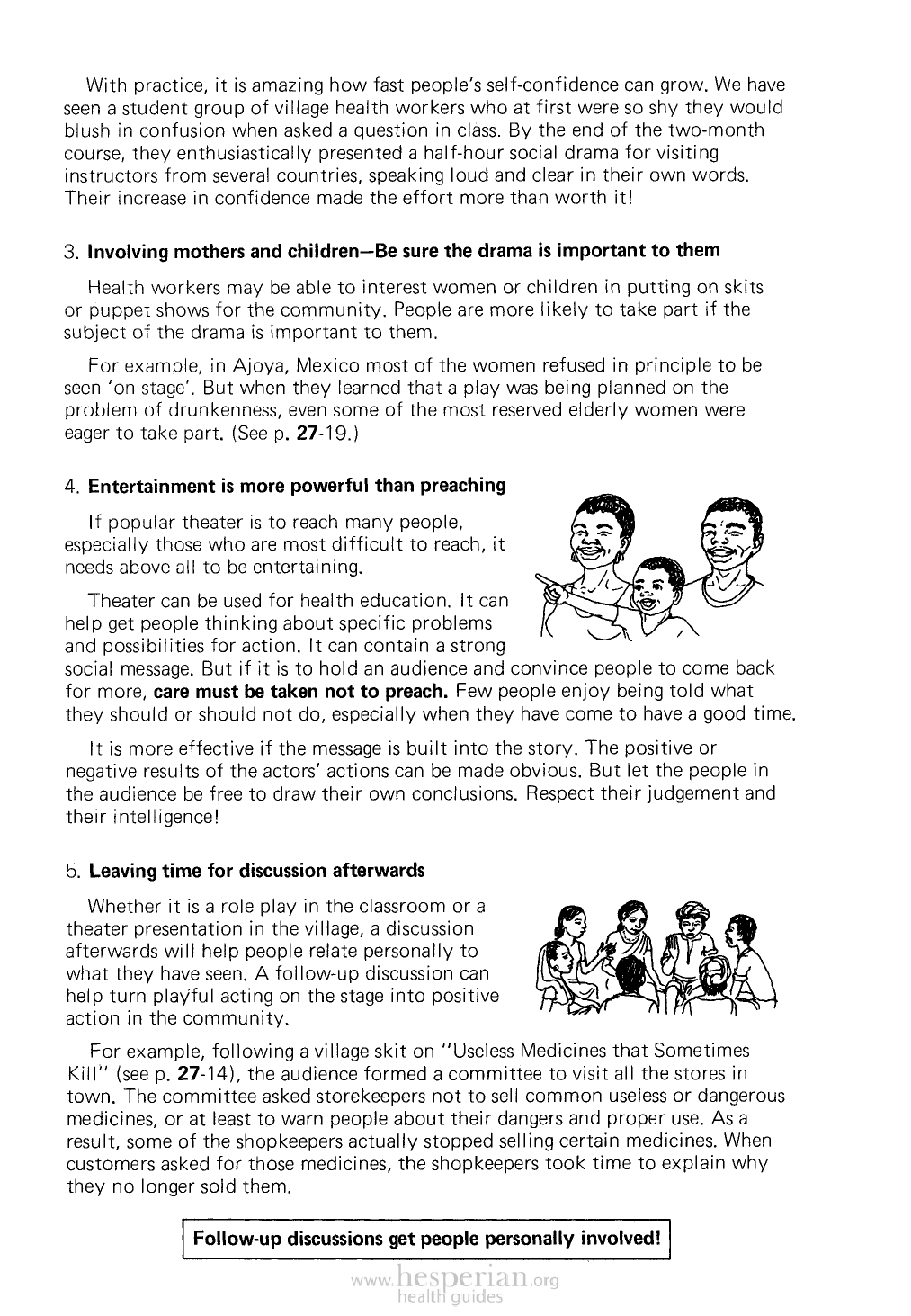
27-6
With practice, it is amazing how fast people’s self-confidence can grow. We
have seen a student group of village health workers who at first were so shy they
would blush in confusion when asked a question in class. By the end of the two-
month course, they enthusiastically presented a half-hour social drama for visiting
instructors from several countries, speaking loud and clear in their own words.
Their increase in confidence made the effort more than worth it!
3. Involving mothers and children—Be sure the drama is important to them
Health workers may be able to interest women or children in putting on skits or
puppet shows for the community. People are more likely to take part if the subject
of the drama is important to them.
For example, in Ajoya, Mexico most of the women refused in principle to be seen
‘on stage’. But when they learned that a play was being planned on the problem of
drunkenness, even some of the most reserved elderly women were eager to take
part. (See p. 27-19.)
4. Entertainment is more powerful than preaching
If popular theater is to reach many people,
especially those who are most difficult to reach, it
needs above all to be entertaining.
Theater can be used for health education. It can
help get people thinking about specific problems and
possibilities for action. It can contain a strong social
message. But if it is to hold an audience and convince people to come back for
more, care must be taken not to preach. Few people enjoy being told what they
should or should not do, especially when they have come to have a good time.
It is more effective if the message is built into the story. The positive or negative
results of the actors’ actions can be made obvious. But let the people in the
audience be free to draw their own conclusions. Respect their judgement and their
intelligence!
5. Leaving time for discussion afterwards
Whether it is a role play in the classroom or a
Theater presentation in the village, a discussion
afterwards will help people relate personally to
what they have seen. A follow-up discussion can
help turn playful acting on the stage into positive
action in the community.
For example, following a village skit on “Useless Medicines that Sometimes
Kill” (see p. 27-14), the audience formed a committee to visit all the stores in town.
The committee asked storekeepers not to sell common useless or dangerous
medicines, or at least to warn people about their dangers and proper use. As a
result, some of the shopkeepers actually stopped selling certain medicines. When
customers asked for those medicines, the shopkeepers took time to explain why
they no longer sold them.
Follow-up discussions get people personally involved!